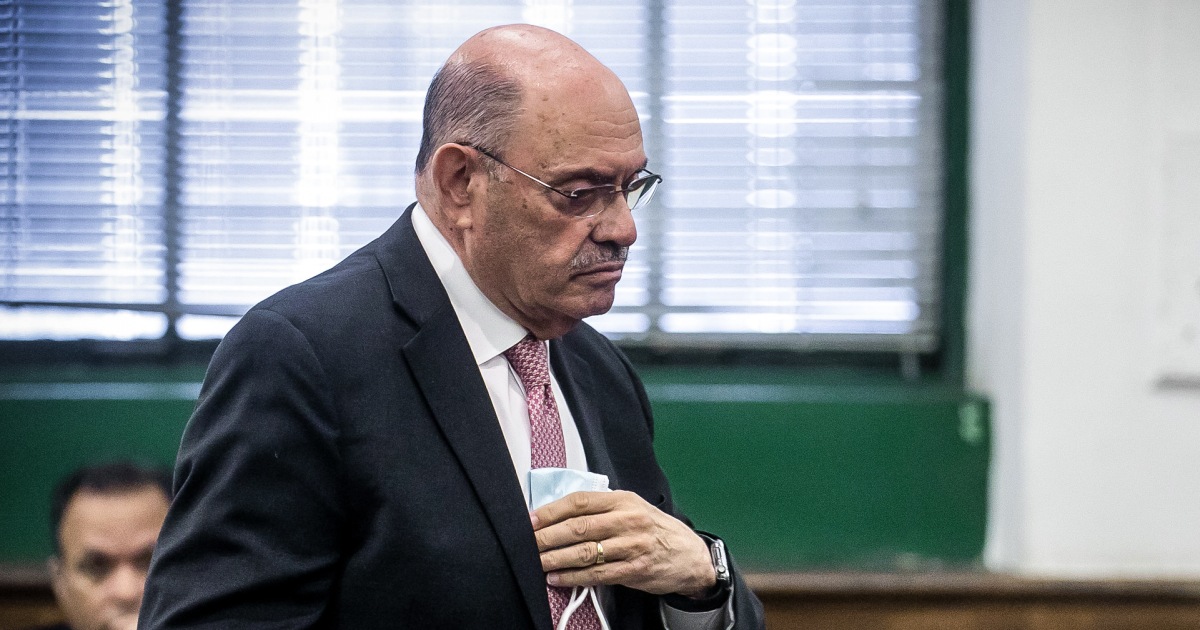
[ad_1]
Former Trump Organization CFO Allen Weisselberg took the witness stand on Tuesday in the New York attorney general’s civil fraud case against Donald Trump and others, including Weisselberg himself.
And while this isn’t the first case in which Weisselberg has testified against Trump’s interests, the stakes are higher now for everyone except maybe Weisselberg himself, who served roughly three months at New York’s infamous Rikers Island jail earlier this year.
Weisselberg, you might recall, pleaded guilty to a tax fraud scheme unrelated to the claims advanced by Attorney General Leticia James, but involving the Trump Organization, which was convicted after a trial at which Weisselberg testified. At sentencing in that case, the company was ordered to pay a $1.6 million fine. But in James’ case, the attorney general is seeking disgorgement of “at least $250 million,” and that’s before the judge determines whether other equitable remedies, including dissolution of Trump companies, is warranted.
With his prison sentence now behind him, Weisselberg’s loyalty to the Boss, as they called Trump, still seems to be intact. Now retired, he is not only represented by Trump lawyer Alina Habba, as opposed to independent counsel, but he also showed palpable pride in the Trump portfolio of real estate assets. Further, his testimony was showered with what felt like a disproportionate share of “not that I can recall” or “I don’t recall.”
Did he have conversations with Trump and former Trump fixer Michael Cohen about Trump’s net worth? Those didn’t happen, Weisselberg testified on Tuesday, even initially stating he simply did not recall any.
Did he provide former Trump Organization executive Jeff McConney with guidance on valuing properties? Only insofar as they concerned the value of commercial leases and how the tenants’ creditworthiness might impact which properties were truly comparable.
For the most part, Weisselberg seemed confident, calm, even upbeat, not chastened by his stint at Rikers. But at other times, Weisselberg’s failure to remember and unresponsive narratives gave way to important, if not damning admissions.

Confronted with emails and news clippings he sent to Trump employee Patrick Birney to influence Birney’s valuation of Mar-a-Lago, for instance, Weisselberg readily admitted the selling price, and not the asking price, of real estate is an appropriate metric of its value. That concession probably meant little to him, but it was huge for the AG’s office, which has shown evidence that McConney used the asking price of certain New York residences to inflate the estimated value of Trump’s Trump Tower triplex apartment.
At other times, on the other hand, Weisselberg appeared to realize exactly what he stepped into. Asked whether his 2017 representation to accounting firm Mazars that the statements of financial condition were presented in compliance with generally accepted accounting principles (GAAP) was accurate, Weisselberg said slowly, “We relied on Mazars to know GAAP.”
That’s when a gleeful Louis Solomon, the prosecutor questioning Weisselberg, went in for the jugular, “Are you saying that you relied on Mazars to make representations to itself?” Weisselberg said no.
Later Tuesday, Weisselberg admitted that prior to Trump becoming president in 2017, he gave Trump the statements of financial condition before they were finalized and that Trump had an opportunity to review them. Weisselberg said he “periodically” received comments from Trump about the statements.
On the other hand, after Trump became president, he started giving those statements to one of Trump’s eldest sons — either Donald Trump Jr. or Eric Trump — but Weisselberg said he could not recall exactly who he gave them to or whether he discussed them with either brother. It’s curious that Weisselberg more clearly remembered the period before Jan. 2017. One has to wonder whether, in light of who currently manages Trump’s real estate empire day-to-day, Team Trump desperately wants to insulate the two brothers from admissions of wrongdoing.
Toward the end of the trial day, Solomon finally started questioning Weisselberg about a topic I had been waiting for all day: To what extent did Weisselberg knowingly mislead insurers, insurance brokers, or sureties in order to obtain or maintain the Trump Organization’s insurance policies? After all, Weisselberg is not only a defendant in this civil case, which claims he and others engaged in repeated illegality by violating New York’s criminal insurance fraud statute but also is reportedly still under investigation by the Manhattan district attorney’s office. And The New York Times has reported that the basis for a potential criminal insurance fraud case against Weisselberg mirrors the attorney general’s allegations in her complaint.
Weisselberg tried to distance himself from the Trump Organization’s insurance program, insisting those responsibilities were mostly shouldered by an employee named Ron Lieberman, along with Cohen and Matthew Calamari. He also suggested that he had no idea where a Zurich Insurance employee, Claudia Mouradian, got the impression that the Trump Organization utilized appraisals of certain properties from the Newmark Group, as she later reflected in internal communications. Instead, Weisselberg insisted the Trump Organization had “no real reason” to obtain any appraisals while conceding it was “possible” appraisals performed for the benefit of their lenders or others were in their possession.
But ultimately, he was forced to acknowledge he was a member of what one insurance employee referred to as the Trump “team of four” with whom they interacted and that insurers visited their offices to review statements of financial condition.
Because of another witness’s schedule, Weisselberg’s testimony is not expected to resume on Wednesday. But when it does, will it be another day of diamonds hidden in the mud? Watch this space.
[ad_2]
Source link
